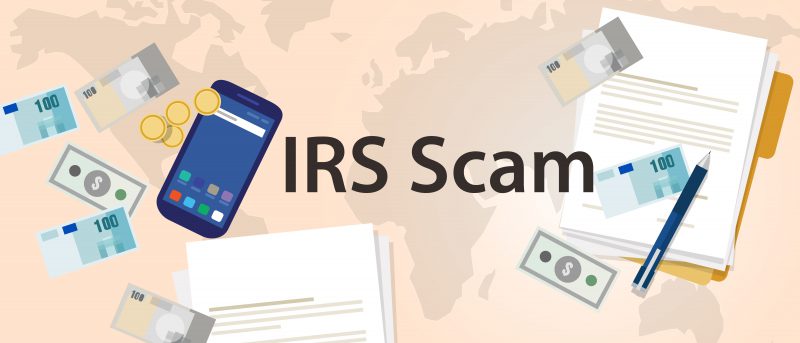
New Twists on Tax Scams
On June 5, 2019, The IRS released and article urging taxpayers to be on the lookout for a spring surge of evolving phishing emails and telephone scams.
The IRS is seeing signs of two new variations of tax-related scams. One involves Social Security numbers related to tax issues and another threatens people with a tax bill from a fictional government agency. Here are some details:
- The SSN hustle. The latest twist includes scammers claiming to be able to suspend or cancel the victim’s Social Security number. In this variation, the Social Security cancellation threat scam is similar to and often associated with the IRS impersonation scam. It is yet another attempt by con artists to frighten people into returning ‘robocall’ voicemails. Scammers may mention overdue taxes in addition to threatening to cancel the person’s SSN.
- Fake tax agency. This scheme involves the mailing of a letter threatening an IRS lien or levy. The lien or levy is based on bogus delinquent taxes owed to a non-existent agency, “Bureau of Tax Enforcement.” There is no such agency. The lien notification scam also likely references the IRS to confuse potential victims into thinking the letter is from a legitimate organization.
Both display classic signs of being scams. The IRS and its Security Summit partners – the state tax agencies and the tax industry – remind everyone to stay alert to scams that use the IRS or reference taxes, especially in late spring and early summer as tax bills and refunds arrive.
As a reminder the IRS will never:
- Call to demand immediate payment using a specific payment method such as a prepaid debit card, gift card or wire transfer. The IRS does not use these methods for tax payments. Generally, the IRS will first mail a bill to any taxpayer who owes taxes. All tax payments should only be made payable to the U.S. Treasury and checks should never be made payable to third parties.
- Threaten to immediately bring in local police or other law-enforcement groups to have the taxpayer arrested for not paying.
- Demand that taxes be paid without giving the taxpayer the opportunity to question or appeal the amount owed.
- Ask for credit or debit card numbers over the phone.
Report the caller ID and/or callback number to the IRS by sending it to [email protected] (Subject: IRS Phone Scam)

